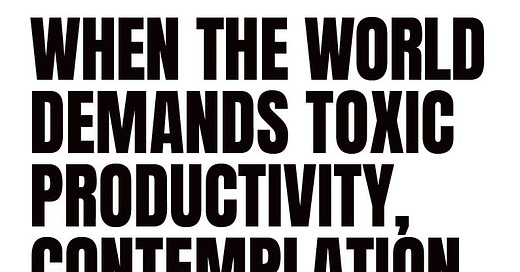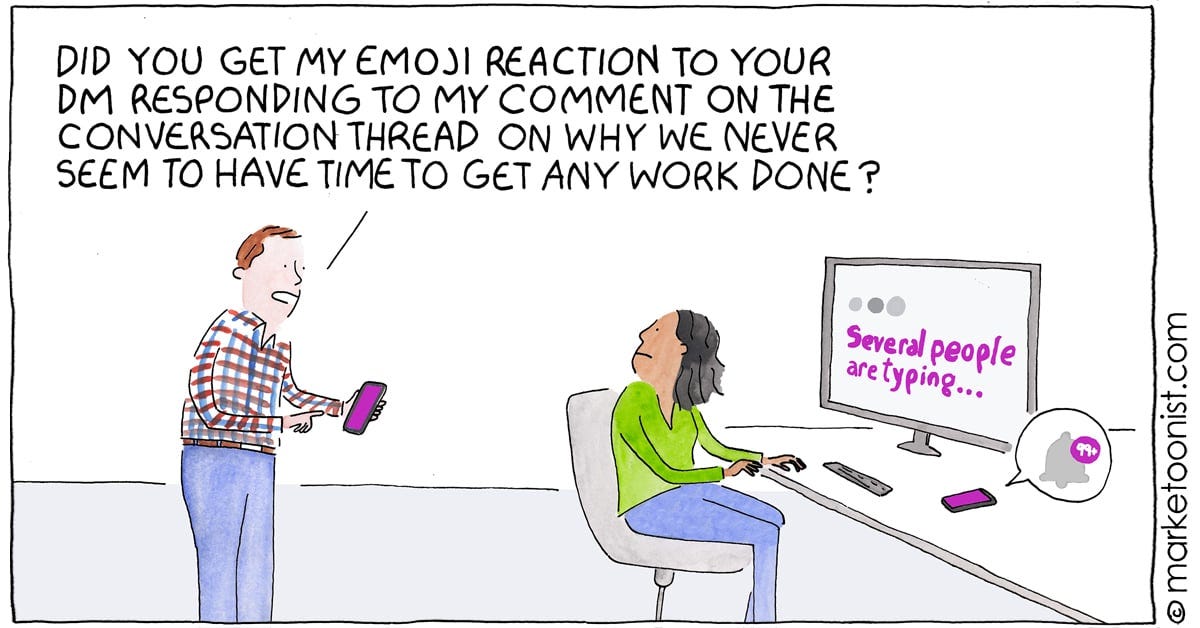I’ve noticed a pattern among people making major career transitions. After bravely deciding to make a professional pivot, they realise they don’t know what to do next. But rather than take time to figure out what they want to do with intentionality, they move straight into ‘doing’. They make themselves even more busy, packing their schedules with ‘productive’ activities so they feel like they’re making progress. But they’re not.
For example, when “Alex” quit her corporate job, she was inspired by the opportunity to make a fresh start and find work that she truly wanted to do. The trouble was she had no idea what her next move should be. She felt an overwhelming need to do something, so she threw herself into job applications, submitting resumes for roles she wasn’t even sure she wanted. She scheduled networking calls with distant acquaintances, hoping one of them might magically provide answers. She signed up for a handful of online courses, convincing herself that learning more skills would bring her clarity.
At first, it felt productive. Alex could point to the emails sent, the interviews lined up, the new bullet points on her CV. But after weeks of frantic activity, exhaustion set in. And worse—she still had no real direction. When a job offer finally came through, she realized with a sinking feeling that she didn’t even want it.
She had been so busy trying to move forward that she never stopped to reflect on whether she was going in the right direction. Her compulsion to act felt ‘productive’, but in reality, it was the opposite: a waste of time and energy.
The Fallacy of “Better to Do Something Than Do Nothing”
Career transitions already come with their fair share of uncertainty, which is exacerbated because our modern world has conditioned us to believe that decisions must be made imminently and any empty calendar slots must be filled. Whether it’s in our schedules, our minds or our inboxes, we feel an almost compulsive urge to keep moving, keep achieving, keep doing. But filling every gap doesn’t always help us move forward—it can keep us stuck in cycles of busyness without real progress.
The Productivity Trap: When Busy-ness Replaces Progress
Western culture glorifies the hustle. As a result, many of us equate action with progress, and mistake motion for momentum. A packed schedule feels like progress, but not all activity is useful. When we default to constant doing, we can lose the ability to discern what is actually valuable versus what is simply filling a void.
Networking calls with no clear purpose, endlessly tweaking our CV, or enrolling in another skills course just in case—these can all become distractions rather than steps toward meaningful progress. The paradox is that by trying to eliminate uncertainty through constant action, we often prolong the insecurity and thwart revelations.
The Urge to Fill Space: Why We Avoid Pausing
For many of us, stillness – or a lack of activity – can feel unnatural and unsettling. Empty spaces force us to confront uncertainty. When we have gaps in our schedule, quiet moments in our day, or periods without external validation, uncomfortable emotions tend to rise up—fear, doubt, impatience. Rather than acknowledging, accepting and facing those feelings, we instinctively try to avoid them through self-distraction.
Our relentless drive to stay busy is often a form of avoidance. It’s easier to send out 20 job applications than to contemplate the deeper questions: What do I actually want? What excites me? What kind of work would be meaningful?
Transitions require spaciousness: room to explore, reflect and listen to our innermost feelings. If we don’t slow down, we may scramble to take immediate action, often leading to rushed decisions, burnout or ending up in a job we don’t truly want. We can risk making choices based on urgency rather than alignment. That’s why it is so helpful to have dedicated reflective spaces for career transitions, like coaching or courses (and on that note – message me if you’re interested in working with me!).
Reclaiming Non-Doing: How to Embrace Stillness and Intentional Action
To move through career transitions more effectively, we need to shift our relationship with empty space. Here are a few tips:
Recognise the discomfort – Notice when you feel the urge to fill gaps with activity. Pause and ask yourself: Am I doing this because it’s necessary, or because it makes me feel ‘productive’?
Embrace stillness as part of the process – Reflection is not wasted time. Taking a step back—whether through journaling, walks, meditation, or simply sitting with questions—can lead to deeper clarity than mindless action ever will.
Set boundaries around busy-ness – Not every opportunity, meeting, or project deserves a ‘yes’. Be intentional about where you invest your time, thoughts, and energy.
Redefine productivity – Instead of measuring success by how much you’ve done, shift the focus to how much clarity you’ve gained, how aligned your choices feel, and how well you’re balancing action with reflection.
Final Thought: Making Peace with Empty Space
Career transitions require more than just doing—they require time and space to think, feel and process. Instead of fearing the empty moments, try leaning into them. You may find that what you’ve been searching for has been waiting in the stillness, all along.
If you’re feeling stuck in your career transition, seeking more clarity, my one-to-one coaching and career transitions course can help. Unlike traditional career programs that focus solely on job search tactics, my approach integrates mindfulness, self-discovery and behavioural insights to help you move forward with confidence and ease. Instead of just landing a job, you’ll gain the tools to navigate uncertainty, make aligned decisions and create a bespoke career that truly fits you. Email me, book a free consultation or explore my course to start making meaningful progress today.








I love this! So many times we tell ourselves “Don’t just stand there, do something”. This encourages us to reflect first…or “Don’t just do something, stand there.”
My favourite quote in your post (which I have already just forwarded to a friend):
Redefine productivity – Instead of measuring success by how much you’ve done, shift the focus to how much clarity you’ve gained, how aligned your choices feel, and how well you’re balancing action with reflection.